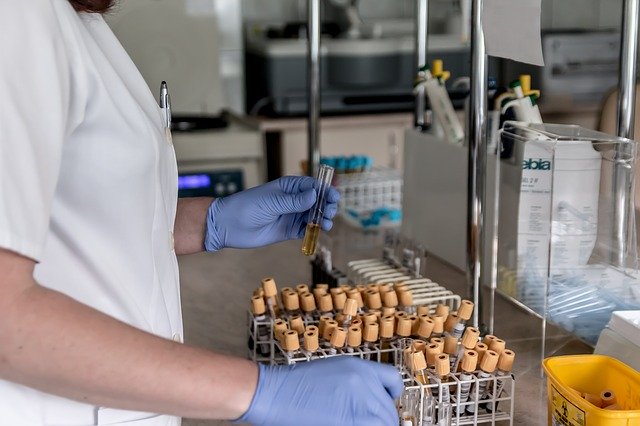AVROBIO announced that the first patient has been dosed in the company’s GuardOne clinical trial, a Phase 1/2 investigational study evaluating AVR-RD-02 for Gaucher disease type 1.

VROBIO announces new patients dosed in Gaucher disease and cystinosis trials. (Credit: Michal Jarmoluk from Pixabay)
Subscribe to our email newsletter
The company also announced that the second patient has been dosed in the ongoing investigator-sponsored Phase 1/2 clinical trial of AVR-RD-04 for cystinosis.
“The first patient dosed is an important milestone for the Gaucher disease community and our AVR-RD-02 program. Gaucher disease type 1 leads to an array of serious symptoms and the current standard of care does not halt disease progression,” said Geoff MacKay, AVROBIO’s president and CEO. “With a single dose of our investigational lentiviral gene therapy, we aim to prevent the buildup of a fatty substrate in specialist immune cells called macrophages, as well as debilitating symptoms throughout the body, including the brain.”
The company’s Phase 1/2 trial of AVR-RD-02 for Gaucher disease type 1 is currently recruiting patients in Australia and Canada, with new clinical sites expected to open in the U.S. and Israel by year-end.
Gaucher disease is a rare, inherited lysosomal storage disorder characterized by the toxic accumulation of glucosylceramide (GlcCer) and glucosylsphingosine (GlcSph) in macrophages. Macrophages bloated with these fatty substances are called Gaucher cells which amass primarily in the spleen, liver and bone marrow. This results in a variety of potential symptoms, including grossly enlarged liver and spleen, bone issues, fatigue, low hemoglobin levels and platelet counts and an adjusted lifetime relative risk of developing Parkinson’s disease that may be more than 20 times greater than the general population. Even on enzyme replacement therapy (ERT) – the current standard of care – people with Gaucher disease type 1 have a shortened life expectancy and may experience debilitating symptoms that significantly reduce their quality of life. An estimated 1 in 44,000 people are diagnosed with Gaucher disease.
“While the current treatments for Gaucher disease — enzyme replacement therapy and substrate reduction therapy — have been life changing, many unmet needs remain that significantly impact the daily lives of patients and families living with Gaucher disease, including fatigue, severe bone pain, joint destruction, increased risk of developing Parkinson’s disease and other co-morbidities,” said Christine White, executive director, National Gaucher Foundation of Canada. “We welcome clinical trials of new therapeutics that have the potential to stop the progression of Gaucher disease and are excited to learn more about the potential use of this lentiviral gene therapy.”
The Phase 1/2 trial of AVR-RD-02 for Gaucher disease type 1 is designed to evaluate the safety and efficacy of the investigational gene therapy and is expected to enroll eight to 16 patients between the ages of 18 and 35. AVR-RD-02 starts with the patient’s own hematopoietic stem cells, which are genetically modified to express functional glucocerebrosidase (GCase), the enzyme that is deficient in Gaucher disease. The trial will include both patients who are treatment-naïve and who are on ERT. Every patient in this trial will be treated using the plato gene therapy platform, AVROBIO’s foundation designed to scale gene therapy worldwide.
Second patient dosed in cystinosis clinical trial
The second patient has been dosed in the company’s AVR-RD-04 investigational gene therapy program for cystinosis. The ongoing Phase 1/2 clinical trial is sponsored by the company’s academic collaborators at the University of California, San Diego (UCSD)1 and is led by Stephanie Cherqui, Ph.D., associate professor of pediatrics at UCSD.
Cystinosis is a progressive disease marked by the accumulation of cystine in cellular organelles known as lysosomes. This buildup can cause debilitating symptoms including kidney failure, corneal damage and thyroid dysfunction, often leading to a shortened lifespan. Currently, more than 90 percent of treated cystinosis patients require a kidney transplant in the second or third decade of life. The current standard of care for cystinosis is cysteamine, a burdensome treatment regimen that can require dozens of pills per day and may not prevent overall progression of the disease.
The Phase 1/2 clinical trial is evaluating the safety and efficacy of AVR-RD-04 in patients at least 18 years of age who are currently being treated with cysteamine. The trial will enroll up to six patients. AVR-RD-04 starts with the patient’s own hematopoietic stem cells, which are genetically modified to produce functional cystinosin, the protein that is deficient in cystinosis.
Patient recruitment activities for Fabry Phase 2 trial ongoing
Patient recruitment activities for AVROBIO’s Phase 2 FAB-201 trial for Fabry disease continue for clinical trial sites in Australia, Canada and the U.S. While clinical trial sites are starting to reopen and patient identification activities are ongoing with a number of potential new patients identified, activities related to new patient screening, consent and enrollment in the FAB-201 clinical trial have been slowed because of the COVID-19 pandemic.
AVROBIO is conducting two clinical trials for its AVR-RD-01 investigational gene therapy for Fabry disease. Four patients have been dosed in the global Phase 2 trial (FAB-201), which is evaluating treatment-naïve patients, and five patients are participating in the fully enrolled Phase 1 investigator-led clinical trial, known as FACTs.
AVR-RD-01 starts with the patient’s own hematopoietic stem cells, which are genetically modified to produce functional alpha-galactosidase A, the enzyme that is deficient in Fabry disease. People with the disease experience a toxic buildup of a complex cell lipid called globotriaosylceramide (Gb3 or GL3), which can damage tissues throughout the body and brain, and cause the progressive signs and symptoms of Fabry disease.
Source: Company Press Release
 Advertise With UsAdvertise on our extensive network of industry websites and newsletters.
Advertise With UsAdvertise on our extensive network of industry websites and newsletters.
 Get the PBR newsletterSign up to our free email to get all the latest PBR
news.
Get the PBR newsletterSign up to our free email to get all the latest PBR
news.

